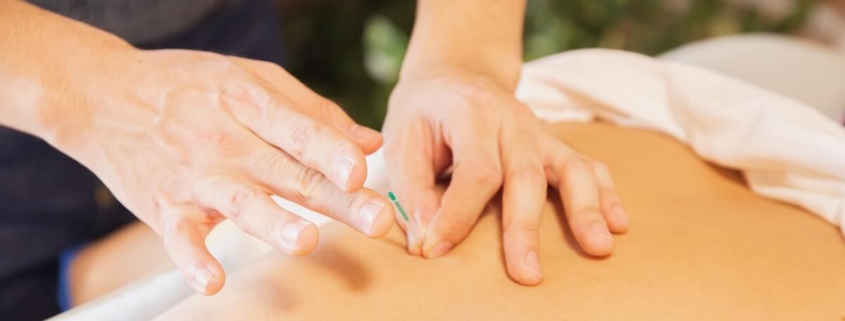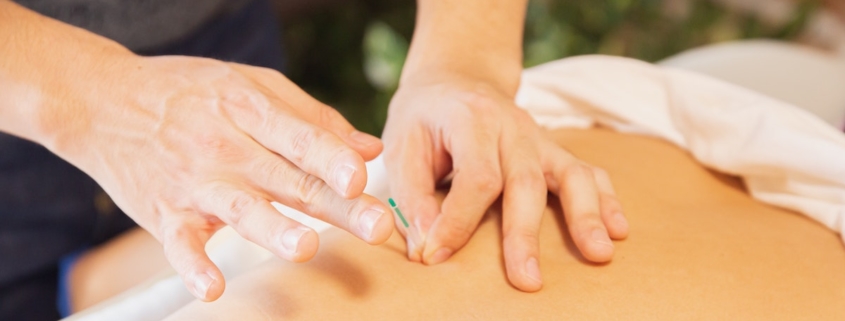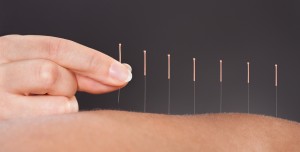Do you suffer from seasonal allergies? Are you searching for a natural alternative to antihistamines for treating your allergies? Whether you suffer from bouts of seasonal allergies, indoor allergies, or allergic reactions year-round, here’s how acupuncture allergy treatments help deliver relief.
Spring and summer are favourite seasons for many, but higher pollen counts can wreak havoc on seasonal allergy sufferers. At the onset or worsening of allergy symptoms, many allergy sufferers rely on antihistamines to get them through the season. Unfortunately, antihistamines can come with unwanted side effects, including drowsiness. Because of this, many allergy sufferers look for more natural, long-term allergy treatments.
Regardless of what triggers your allergies, you deserve relief, and acupuncture allergy treatments are a natural option worth considering! Acupuncture allergy treatments can provide immediate and long-term relief from many allergy symptoms, including itching from eczema and urticaria. And, unlike medication, acupuncture doesn’t come with side effects–unless you consider relaxation one of them.
How Acupuncture Allergy Treatments Work
If you’re new to acupuncture, it helps to know what acupuncture is. A practice that’s over twenty-five hundred years old, acupuncture’s ancient origins belong to a methodology known as Traditional Chinese Medicine (TCM). Traditional Chinese Medicine has evolved over thousands of years and includes various treatments that address both the physical and psychological aspects of the body.
A key component of Traditional Chinese Medicine is the concept of life-energy referred to as qi (pronounced “chee”). According to TCM, our bodies contain energy channels referred to as meridians, which carry qi and connect our organs and tissues. When qi is out of balance or blocked, pain and ailments arise. Conversely, when qi is rebalanced, pain and ailments are relieved.
The practice of acupuncture involves the strategic placement of thin needles at specific meridian points along the body to stimulate and restore the balanced flow of qi. Acupuncturists know which acupuncture points to stimulate according to your allergies and symptoms. Acupuncture also takes into account that two people may have the same ailment while experiencing different symptoms, therefore requiring tailored treatments for effective relief.
What to Expect
The stainless steel needles used for acupuncture are extremely thin and are rarely felt when going in, placed at shallow depths at targeted meridian points. While many patients find acupuncture treatments relaxing, you may experience occasional discomfort when specific meridian points are stimulated, best described as a feeling of heaviness or pressure, which your practitioner will adjust to ensure your comfort throughout your treatment.
Immediately following treatment, you may feel energized, extremely relaxed, or slightly sleepy. For this reason, It’s best to allow yourself a few minutes after treatment to relax and enjoy a glass of water or cup of tea before driving and resuming your usual activities.
There is no downtime required following acupuncture, but depending on your treatment plan and objectives, your practitioner may make personalized recommendations to ensure you receive the most benefit from each treatment.
How Many Treatments are Required?
While a single acupuncture allergy treatment can help relieve allergy symptoms, the best results are often seen from multiple treatments to maintain results.
Do Acupuncture Allergy Treatments Come With Any Risks?
It is vital that you only pursue acupuncture treatments from registered acupuncturists to avoid infection or complications.
Other rare but possible side effects include:
- Potential bruising, temporary redness, or itching where a needle was inserted
- Allergic reaction to needles
- Muscle twitching or spasms
Your acupuncture practitioner will go over these risks with you.
Take the Next Step
Get relief from allergies—book your first acupuncture allergy treatment at Diversified Health Clinic today, or contact our clinic to learn more.
Your first appointment will include a health assessment that will help your practitioner tailor your treatments to your specific needs and objectives and allow you to ask any questions you might have.
When you call to book your appointment, let our front desk staff know if you are on a health benefits plan that covers naturopathic/acupuncture treatment. We offer direct billing and can help process your claim.
Related
How to Conquer Seasonal Allergies
Spring is in the air! Allergy Season Relief with Acupuncture
Acupuncture for Immunity




